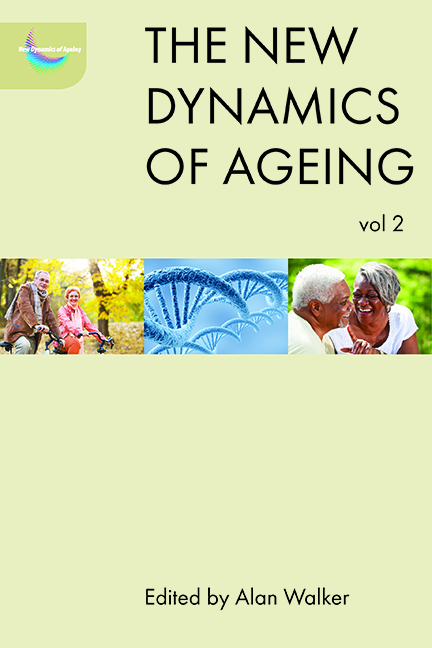six - Families and caring in South Asian communities
Published online by Cambridge University Press: 13 April 2022
Summary
Introduction
Like other Western societies, the UK is undergoing important social and demographic changes, most notably the continued ‘ageing’ of the population and the increasing ethnic diversity of the older population. In the UK ethnicity is defined on the basis of self-identification from a standard list of categories included in routine administrative data collection, social surveys and the decennial census. This approach recognises that ethnicity is a multidimensional concept that embraces a constellation of characteristics including country of birth, skin colour, language(s) spoken, nationality, culture and religion, and which represents an individual/group identity that is grounded in shared origins or social background; shared culture and traditions that are distinctive and maintained between generations; and a common language and/or religious tradition. Fundamental to the concept of ethnicity is that it represents an individual's self-assessment of their status and, consequently, may change over time and is not externally attributed or imposed by others. In terms of diversity, the 2011 Census data report that 16 per cent of the population of England and Wales self-define themselves as non-White compared with 5 per cent in 1991, with approximately 4 per cent self-defining as Black/African-Caribbean and 5 per cent as South Asian (2.5 per cent Indian, 2 per cent Pakistani and 0.8 per cent Bangladeshi).
These two demographic trends noted above intersect with the ageing of the communities of migrants who came to the UK from the Caribbean and India in the 1950s, from Pakistan in the 1970s, with the Bangladeshi group arriving in the late 1970s and early 1980s. For these groups migration was for a range of reasons including economic opportunities, family reunification or because of expulsion from their country of residence in the case of the Ugandan Asians. Eighteen per cent of the White population of England and Wales are aged over 65 compared with 14 per cent of the African Caribbean group, 8 per cent of the Indian community and 4 per cent each for the Pakistani and Bangladeshi populations (Lievesley, 2010). A key feature of these ageing members of our minority populations is that they are almost exclusively comprised of first-generation migrants (Herbert, 2008; Qureshi, 1988).
- Type
- Chapter
- Information
- The New Dynamics of Ageing Volume 2 , pp. 87 - 104Publisher: Bristol University PressPrint publication year: 2018



